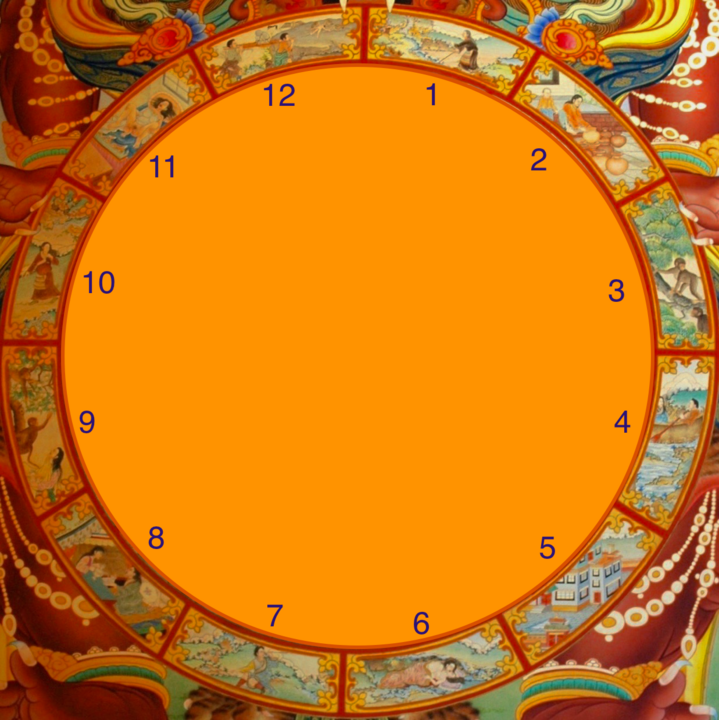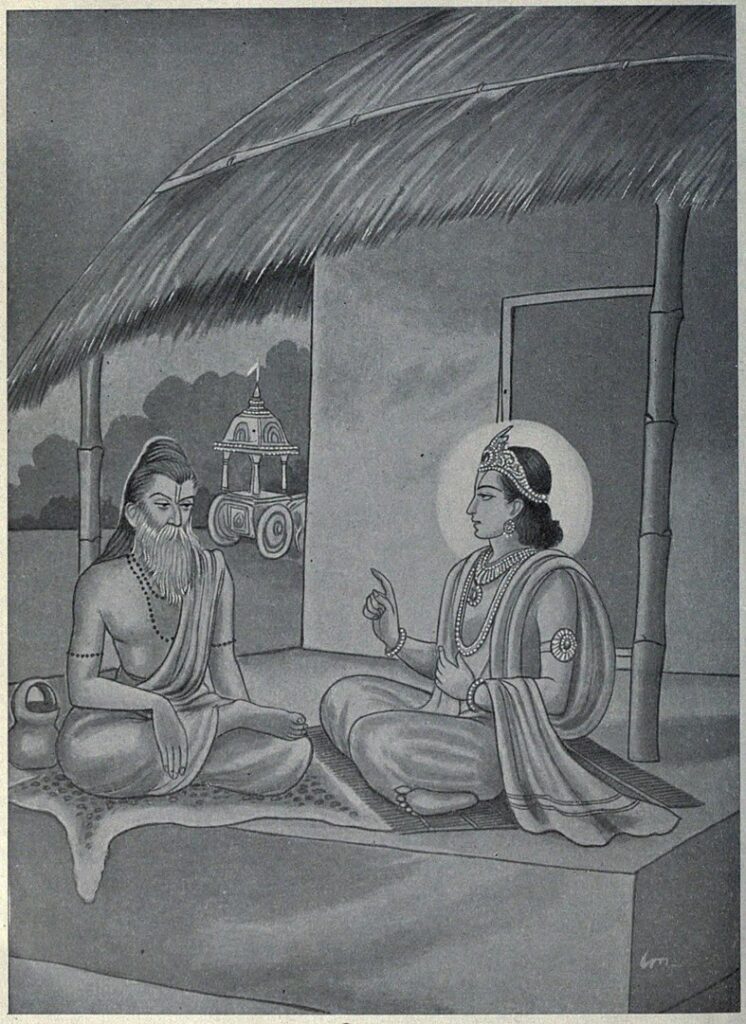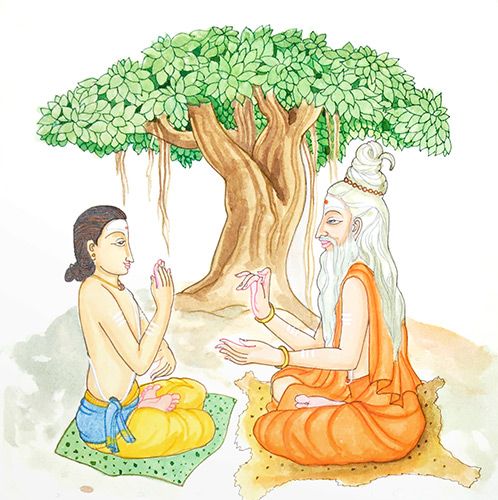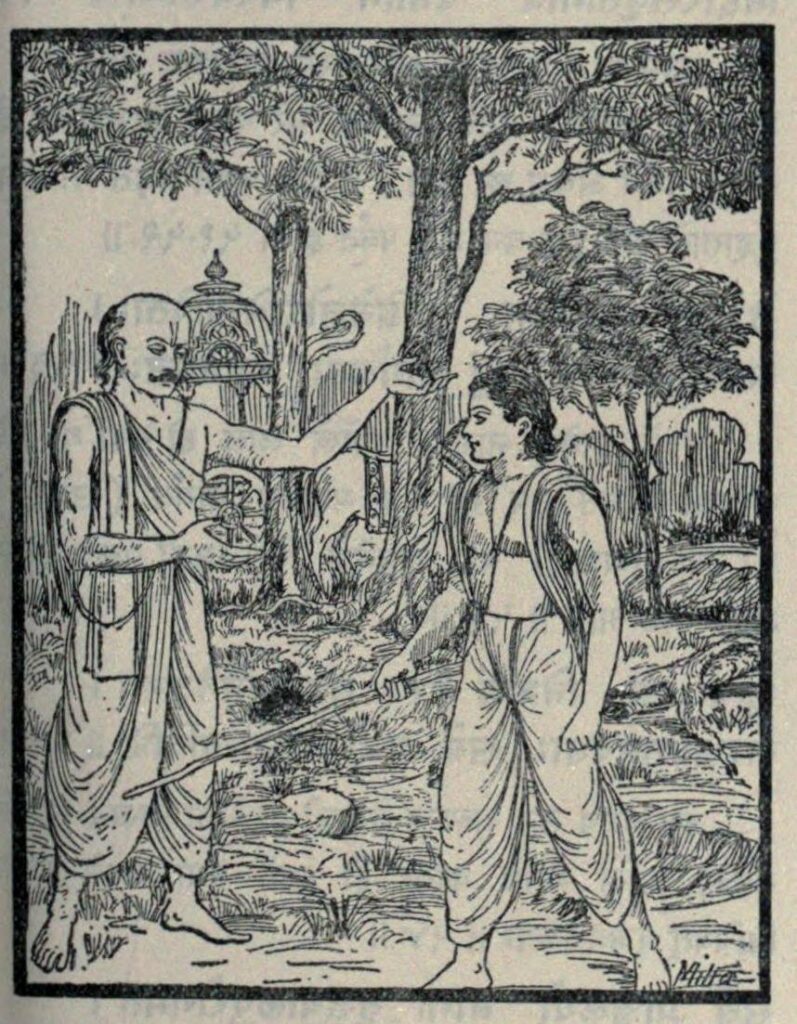
Rishi Veda explained the meaning of everything Uttanka had seen in the city of the serpents. He said, “The two ladies, in the region of the Nagas, were Dhata and Vidhata. The black and white threads represent night and day. The wheel containing twelve spokes being turned by six boys represents the year comprising of six seasons. The man in the region of the Nagas was Parjanya, the God of rain, and the large horse was Agni, the God of fire. The large bull was Airavata, the king of elephants, and the man seated on the bull was Indra. The bull’s dung that you ate was amrit.
You were able to remain alive in the region of the Nagas because you consumed the amrit. Indra is my friend. He helped you because he took mercy on you. It is because of his help that you have returned safely with the earrings.
O Uttanka, now I give you permission to leave. You will have good fortune.”
Thus Rishi Veda, allowed Uttanka to leave after having received the guru-dakshina that Uttanka had insisted on offering.
Note: The story of Uttanka’s experiences in the regions of the Nagas is deeply symbolic. Let’s try to understand why.
Dhata and Vidhata were the sons of Sage Bhrigu from his wife, Khyati. Khyati had one more child – Goddess Lakshmi. So they were Goddess Lakshmi’s brothers. Dhata was married to Ayati and Vidhata was married toNiyati.
Ayati and Niyati were daughters of Meru.
Following are the Sanksrit meanings of these names:
Dhata means creator and Ayati means royal.
Vidhata means controller and Niyati means destiny.
The story of Uttanka in the region of the Nagas mentions the creator, controller, royalty, destiny, Indra, time, seasons, day, and night. So the story is allegorical to the creation and certain aspects of creation.




